Photos: Google unveils Chrome OS
The Chrome OS code will be made available to developers, but it won't be showing up on devices for a year.


Google Chrome OS
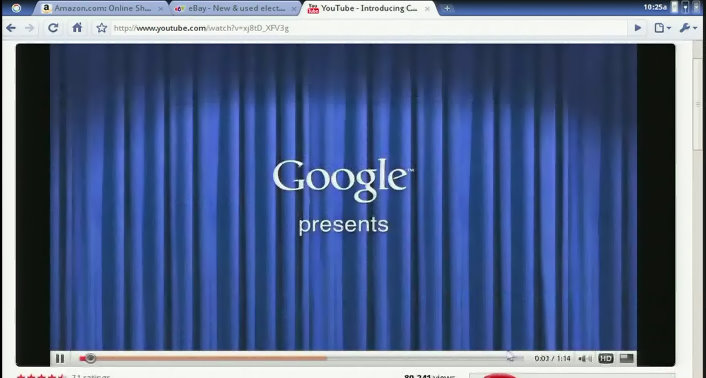
Google Chrome OS
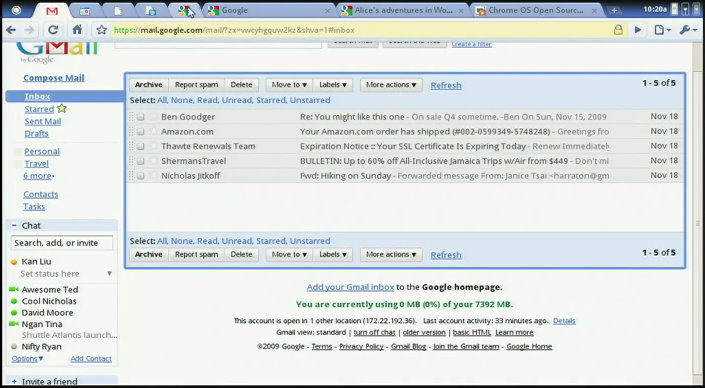
Google Chrome OS
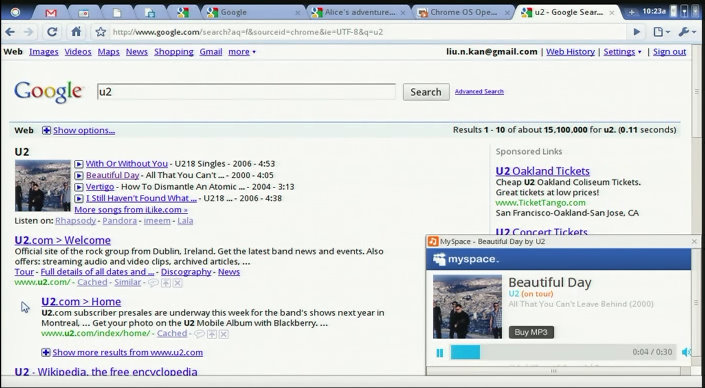
Google Chrome OS
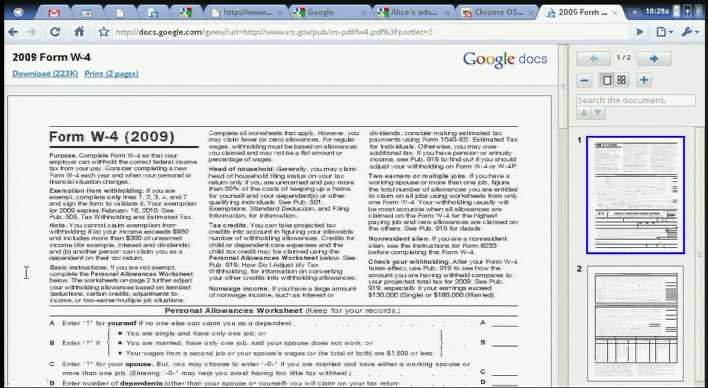
Google Chrome OS
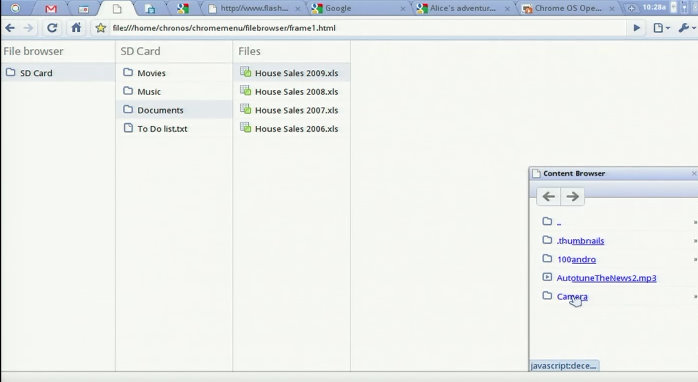
Google Chrome OS
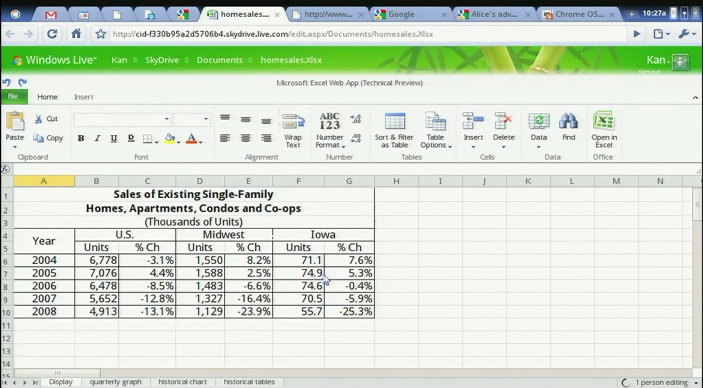
Google Chrome OS
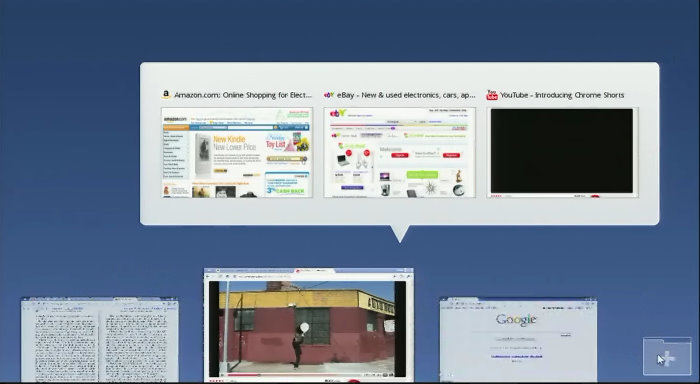
Google Chrome OS
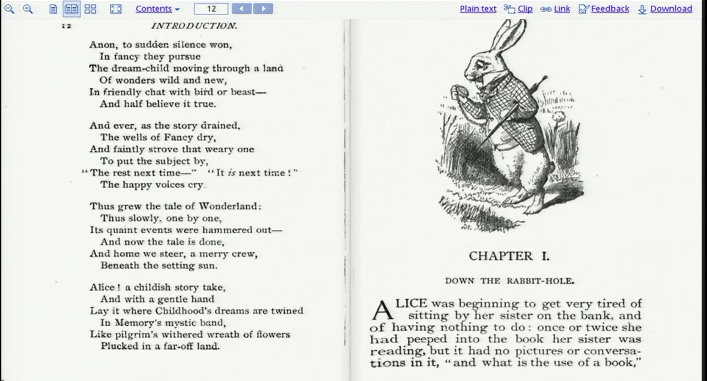
Google Chrome OS
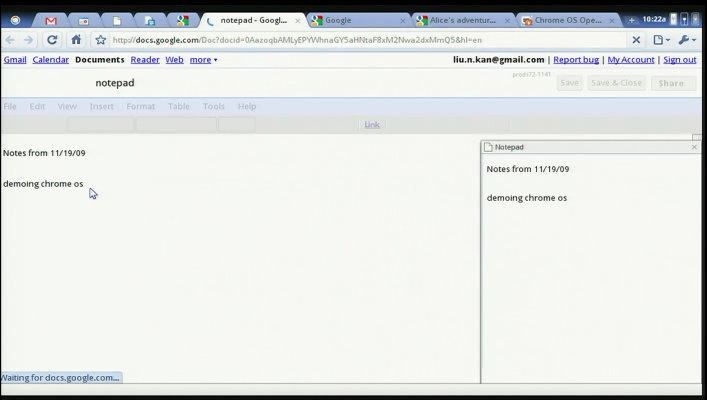
Google Chrome OS
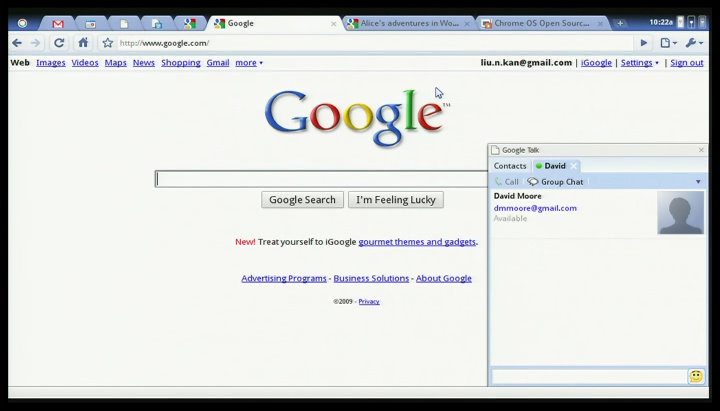
Google Chrome OS
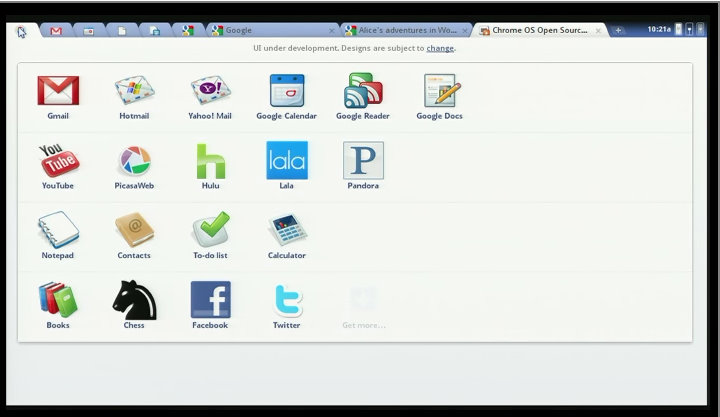
Google Chrome OS
Google has unveiled its Chrome operating system, making it available to the open source development community.
However, end users won't be able to download the OS to run on any old machine, as it will only be shipped on specifically designed devices, which should hit shelves by the end of next year. Click here or on Gallery above for screenshots.
On the browser side, Google also promised the Chrome browser would be made available on Mac and Linux by the end of this year, with the Extensions add-on system showing up by then, too.
OS details
Sundar Pichai, vice president of product management at Google, said the OS would boot as fast as turning on a TV, and run even faster than the Chrome browser on Windows.
All of the applications will be web apps, nothing will be installed locally. "In Chrome OS, every application is a web application. There are no conventional desktop applications," Pichai said.
On top of that, all data would be held in the cloud, with any personal settings synced automatically. As all data is automatically synced to the cloud, typing in the notepad instantly syncs with Google Docs, for example.
Get the ITPro daily newsletter
Sign up today and you will receive a free copy of our Future Focus 2025 report - the leading guidance on AI, cybersecurity and other IT challenges as per 700+ senior executives
User interface
The user interface will essentially be very similar to the Chrome browser. Applications will run in the browser window, with tabs along the top. There will also be a window where users can pin apps for future use.

Some applications will show up in a "persistent" window. For example, chat or music players would sit in the corner, outside of the browser window. "Internally we call them moles, as they pop up from underground, but externally we call them panels," Pichai said.

The team demoed other apps, including an e-book reader, flash game and music player. Anything that's a web app will run, Pichai said - including Microsoft's new Office Web Apps.
Opening an Excel file, he said: "It turns out Microsoft have launched a killer app for Chrome OS."

Chrome OS also allows multiple instances to run at the same time, which can be flipped through.
Pichai noted that some applications would be able to work in offline mode, in case connectivity wasn't available. Asked about the security and reliability of the cloud - especially after GMail has tripped up a few times this year - Pichai said people are already dependent on connectivity. "Our point here is simple. If the cloud is down, it affects every computer you're on."
One concern many had with Google was the development of drivers. Pichai said periphferals like keyboards and mice would all work, with the firm taking an "innovative approach" to handling printing.
Devices
The Chrome OS will only be available on specially designed devices, which will be unveiled in the middle of next year and hit shelves before next Christmas.
Those devices will essentially be netbooks, but with larger keyboards, proper trackpads, and screens with better resolution than what's currently found on netbooks. "Netbooks are very very popular, but there's some pretty serious usabilty issues with the netbooks out there," Pichai said.
The devices will only have SSD, with traditional drives not allowed. At the moment, the system is running on x86, but Google is looking to make it work with ARM by launch.
Pichai wouldn't discuss pricing - it's a bit early for that - but said the range would be what people are "used to" today.
Longer term, the OS could move to laptops and desktops, but Pinchai said the focus for 2010 was developing netbook devices.
Freelance journalist Nicole Kobie first started writing for ITPro in 2007, with bylines in New Scientist, Wired, PC Pro and many more.
Nicole the author of a book about the history of technology, The Long History of the Future.
-
 Cleo attack victim list grows as Hertz confirms customer data stolen
Cleo attack victim list grows as Hertz confirms customer data stolenNews Hertz has confirmed it suffered a data breach as a result of the Cleo zero-day vulnerability in late 2024, with the car rental giant warning that customer data was stolen.
By Ross Kelly
-
 Lateral moves in tech: Why leaders should support employee mobility
Lateral moves in tech: Why leaders should support employee mobilityIn-depth Encouraging staff to switch roles can have long-term benefits for skills in the tech sector
By Keri Allan
-
 Spanish spyware outfit uncovered, develops exploits for Windows, Chrome, and Firefox
Spanish spyware outfit uncovered, develops exploits for Windows, Chrome, and FirefoxNews Google was only able to discover the company after an anonymous submission was made to its Chrome bug reporting programme
By Zach Marzouk
-
 Google adds new security vendor plugins for Chrome, improved Chrome OS policy controls for IT admins
Google adds new security vendor plugins for Chrome, improved Chrome OS policy controls for IT adminsNews New integrations across various security pillars aim to improve Chrome OS and Chrome browser security for enterprise customers
By Connor Jones
-
 Google patches second Chrome browser zero-day of 2022
Google patches second Chrome browser zero-day of 2022News Google acted quickly to secure against the type confusion vulnerability that was under active exploitation
By Connor Jones
-
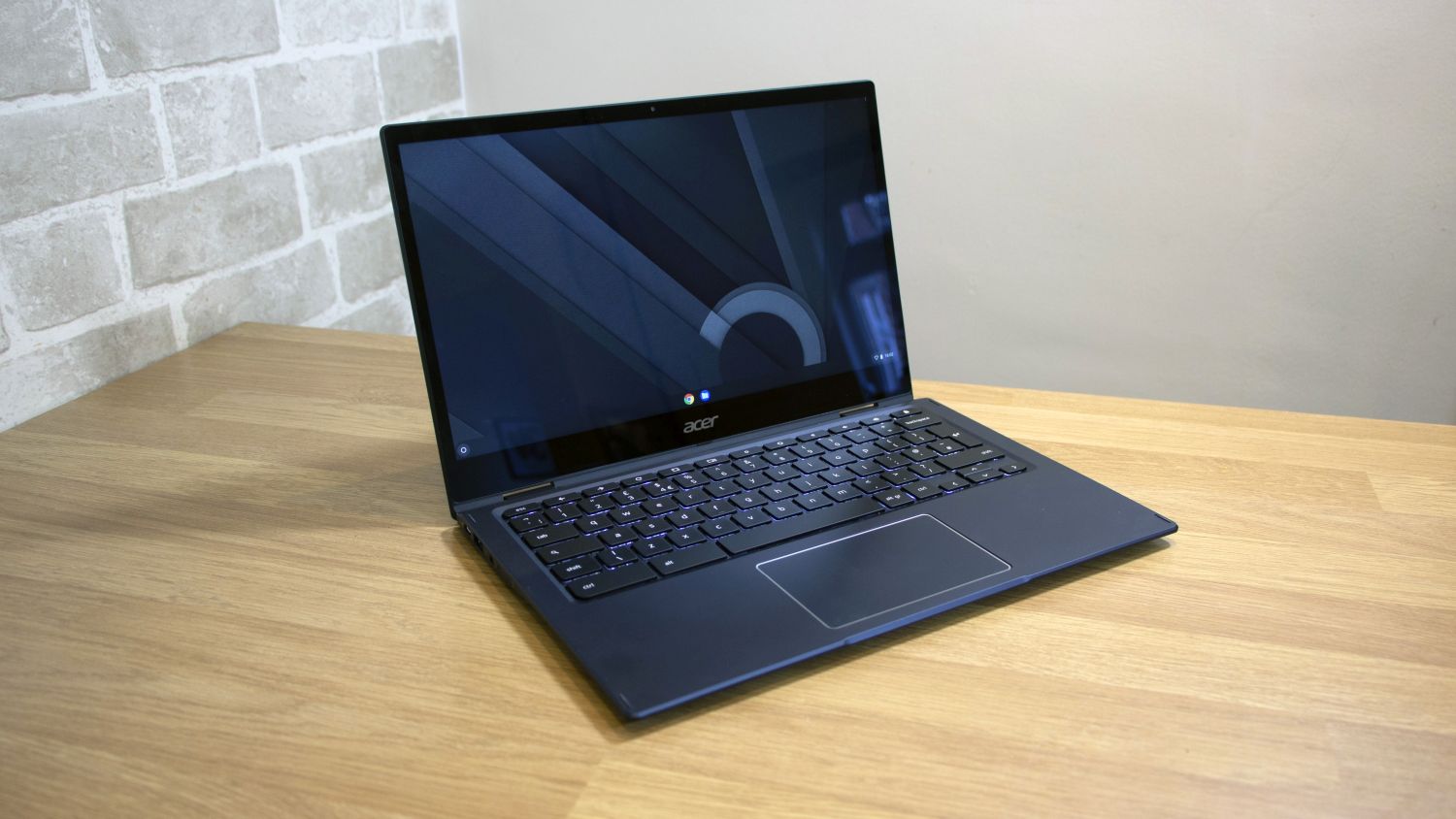
 Acer Chromebook Spin 513 review: Cheap and mostly cheerful
Acer Chromebook Spin 513 review: Cheap and mostly cheerfulReviews An affordable Chromebook convertible with good looks but mediocre performance
By Mike Jennings
-
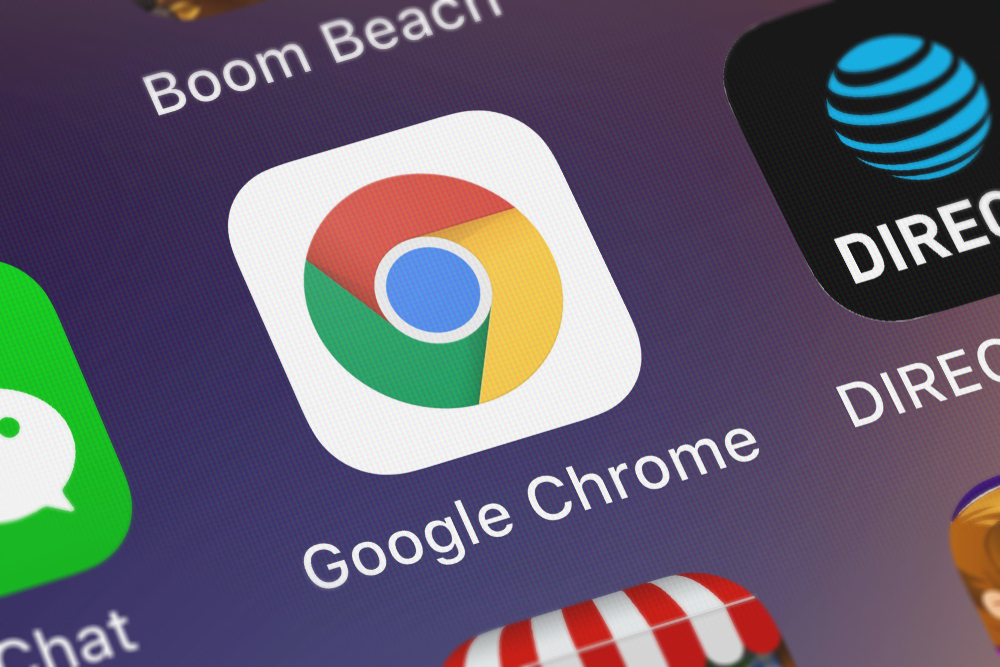 Google says Chrome is now faster than Safari on Apple Silicon
Google says Chrome is now faster than Safari on Apple SiliconNews According to Apple's own benchmarks, Chrome 99 scored the highest out of any browser ever tested
By Connor Jones
-
 Google Chrome update fixes zero-day under active exploitation
Google Chrome update fixes zero-day under active exploitationNews Google releases a fresh wave of patches for severe vulnerabilities that could facilitate code execution and system takeover via Google Chrome
By Connor Jones
-
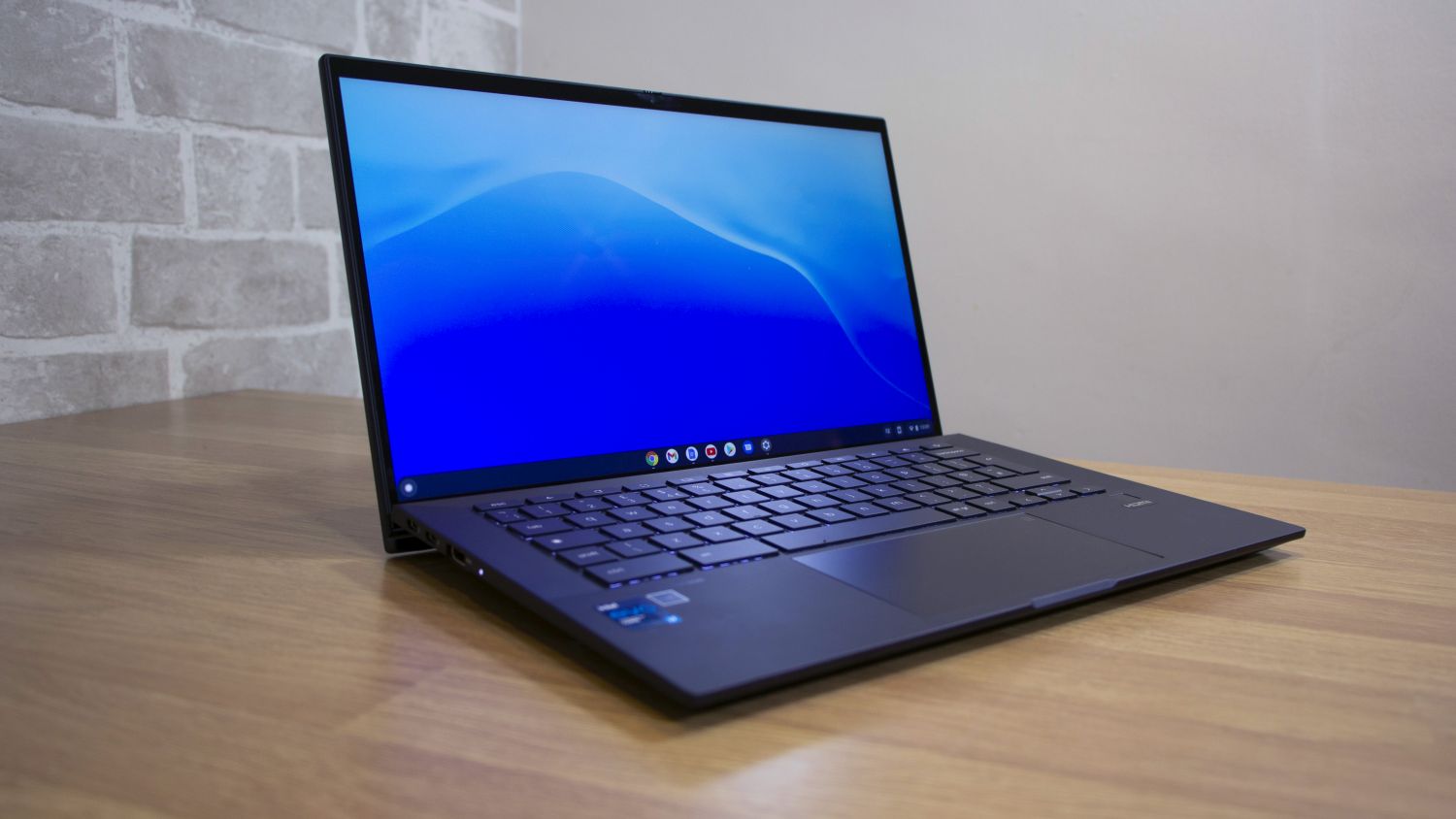
 Asus Chromebook CX9 (CX9400CE) review: The most stylish Chromebook on the market
Asus Chromebook CX9 (CX9400CE) review: The most stylish Chromebook on the marketReviews A sleek, expensive Chromebook that tries to bring professional style to Google’s OS
By Mike Jennings
-
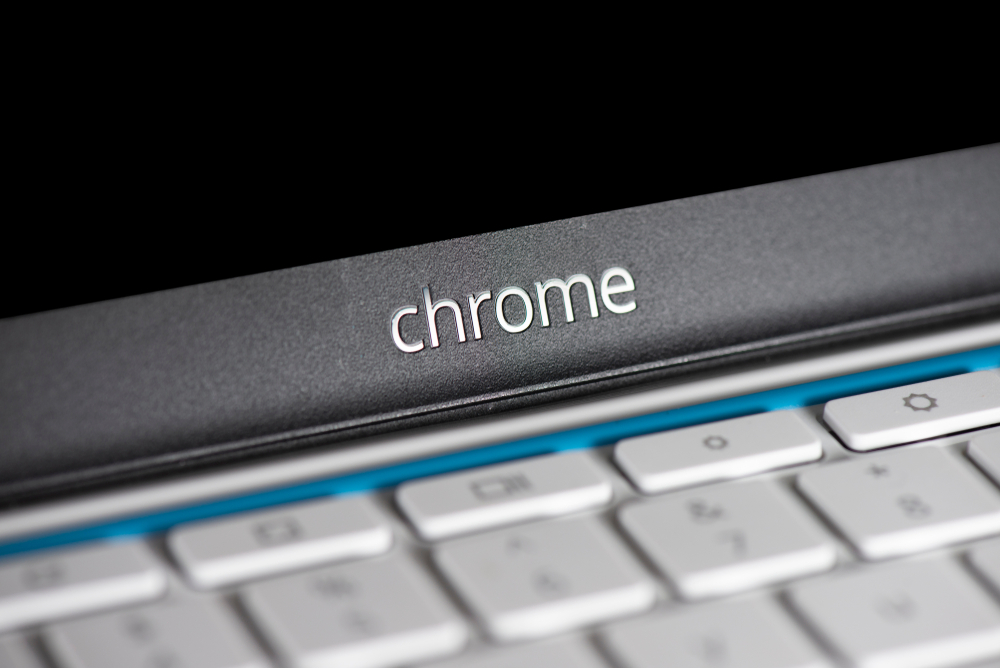 Chromebook shipments plunge due to 'shift in demand'
Chromebook shipments plunge due to 'shift in demand'News Sales of Chrome OS devices fell 29.8% in the third quarter of 2021 to 6.5 million units, according to IDC
By Danny Bradbury